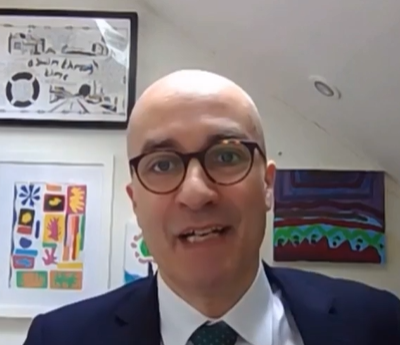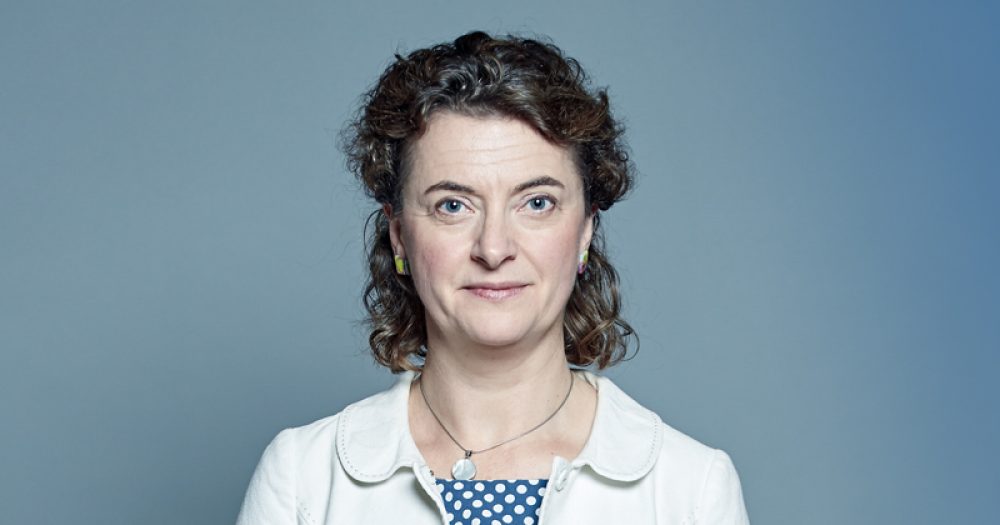A minister has urged high-performing standalone academies not to sit in their “splendid ‘outstanding’ isolation,” as the government launches a fresh drive for every school to join a multi-academy trust.
For the person sitting in their splendid ‘outstanding’ isolation, think carefully about what is your moral purpose
Education secretary Gavin Williamson outlined a raft of policies to revive the academies programme by nudging schools into converting and growing MATs.
Plans include formalising ‘try before you buy’ MAT membership, supporting growth of religious trusts and looking at forcing conversion of long-term ‘requires improvement’ schools (see page 5 round-up).
A Schools Week investigation has established the push to academise comes amid a slump in conversion rates – which started before the pandemic.
Academy openings hit a decade-low amid Covid disruption last year. But officials and experts say there is latent demand to join MATs as a result of the pandemic.

Williamson said the government’s “vision is for every school to be part of a family of schools in a strong multi-academy trust”.
Williamson claimed single schools were “no longer viable” in his speech, vowing to shift England’s “pick and mix” education system towards a “single model” based around MATs.
Ministers must issue academies ‘clarion call’
Academies minister Baroness Berridge told Schools Week it was ministers’ role to issue a “clarion call” to the sector.
“For the person sitting in their splendid ‘outstanding’ isolation, think carefully about what is your moral purpose of not sharing your excellent single academy trust with a wider group of schools.”
National schools commissioner Dominic Herrington revealed this week that 87 per cent of academies are in MATs, up from 80 per cent three years ago.

But flagging conversion rates reveal just how far off course Covid has knocked the academisation agenda.
Conversion rates last year were the lowest since 2010, with just 240 converter academies, 103 sponsored, 57 free schools and one university technology college opening.
The 401 openings mark a 48 per cent drop on 2019. The analysis includes some schools transferred between trusts which received new DfE reference numbers.
Completed conversions gradually picked up throughout last year, but dipped further in the latest lockdown.
DfE rejected call for halt to academies conversion
The stark decline comes in spite of the DfE rejecting calls for a national halt to conversions during the pandemic.
The Local Government Association backed a pause last May, warning overstretched councils’ time spent handling conversions was undermining their efforts to deal with the pandemic.
The National Education Union agreed, warning proper consultation was impossible and wrong when schools had “life and death issues to deal with”.
Peacehaven Heights and Telscombe Cliffs, two primary schools in East Sussex, defended consulting virtually on controversial conversion plans earlier this year.
But they U-turned this month amid parent anger and staff strike plans. A council spokesperson said consultation was on hold until all Covid restrictions had lifted to ensure “meaningful consultation”.
Leora Cruddas, CST chief executive, said it was “not at all surprising” Covid had hit conversions, calling it a “capacity issue”.

Sarah Ginns, research manager at Forum Strategy, said trusts had focused on supporting existing schools rather than growth.
Geoff Barton, general secretary of the Association of School and College Leaders, noted no schools would have received academy orders as Ofsted inspections were suspended.
Academies orders already flagging before pandemic
But official figures show academisation already flagging before Covid struck: 776 schools opened in 2019, a four-year low. Five of the past 10 years had seen more than 1,000 launches.
Cruddas blamed a “lack of clear direction from the then-government” for the slowdown.
Anne West, an education professor at the LSE, also noted a decline could simply be down to the fact so many secondaries had already converted.
There may be an increase in schools choosing to join trusts as a direct result of the collaborative work many developed during the pandemic
But Berridge, Williamson and Herrington all echoed a new CST report in saying the pandemic had boosted school collaboration and highlighted the benefits of MATs. Williamson said central team support had helped schools “concentrate on frontline teaching”.
Herrington said there was a “good platform” for MAT growth, as there was more discussion of their benefits and less on past “high-profile problems” in the academy sector.
“There may be an increase in schools choosing to join trusts as a direct result of the collaborative work many developed during the pandemic,” Ginns added.
But while backing more collaboration between schools, Barton warned against the “narrow idea this has to be done through MAT expansion”.
A DfE spokesperson said: “The Covid outbreak understandably drew the focus of school leaders and governing boards during the last year, but despite the challenges we have over 350 schools in the converter pipeline as of March this year.”








The message to stand-alone academies is this: swallow other schools or be swallowed. So much for the much-vaunted ‘autonomy’. The only schools which will have true ‘freedom’ are those remaining local authority schools.
I think this is the same call that Nicky Morgan made previously – the DfE want all the land and property under their own wing to dish out as they please. I am amazed that Tory Councils do not kick up a fuss – but then they are just left with the Statutory role of “ensuring a good education provision locally” but not able to do anything a bout it, AND hand over their land and buildings
to the DfE ?
If all schools are forced to academies, it makes it easier to do away with the Burgundy Book. This will eliminate the barriers to extending the school day and shortening the school holidays.
This drive for a more homogeneous education “market” seems to fly in the face of their own doctrine where choice is paramount. It’s also risks a dystopian future where a handful of MATs run all the schools in England.
Peter: the academization programme inevitably leads to schools being run for profit. Gove said in 2010 when he was shadow SoS for education that he would be happy for groups like Serco to run schools in England. See here with link to recording https://www.localschoolsnetwork.org.uk/2011/10/gove-is-in-favour-of-profit-making-companies-running-state-schools/%23sthash.hzb5uyax.dpuf
I find it frustrating that the Government still has the view that MATs are the only way. Gavin Williamson has heaped praise upon MATs during the pandemic. In so doing, he has largely ignored the fantastic work done by Local Authority and Diocesan Schools – whether stand alone or like mine, a Federation. We are seeing a move to larger Federations in Kent and East Sussex and we are fully aware of the enormous benefits of collaboration as a group of schools.
However, we do not believe we need to change our legal status and academise to continue to provide the high quality of education to our pupils or to improve it further. In fact, it is likely that the additional expenditure on back office staff, auditing and accountancy fees may well divert funds away from frontline teaching and learning. Hopefully, the Government will take the time to reflect and acknowledge that Federations of LA/VC/VA schools can and do achieve the benefits of collaboration and that a MAT is not the one and only way.
Greg: another lesser-known consequence of a school joining a MAT is that it is no longer a separate legal entity. Each MAT is a single legal entity which comprises all academies within the MAT.